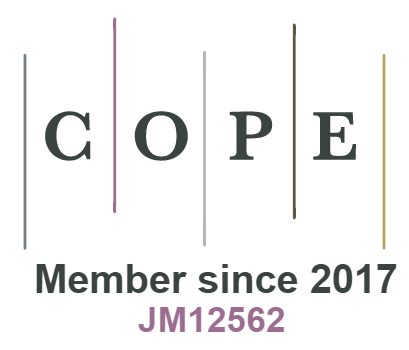PSO and ANN Based Hybrid MPPT Algorithm for Photovoltaic Array under Partial Shading Condition
DOI:
https://doi.org/10.18034/ei.v8i1.481Keywords:
Photovoltaic (PV), Maximum power point tracking (MPPT), Partial Shading Condition (PSC), Particle Swarm Optimization (PSO), Artificial neural network (ANN)Abstract
MPPT is an electronics device that extracts maximum available power from a PV module under varying environmental conditions. But most of the conventional MPPT methods fail to track maximum power under partial shading condition (PSC). Partial shading is the most common situation in PV power generation, which is caused if part of the series-connected strings is partially shaded. This situation leads to the multiple peaks in the P-V characteristics curve of the PV system. So stochastic search method, Particle Swarm Optimization (PSO), is used instead of the conventional methods to track maximum power under PSC. But the PSO method has the limitation of slow operation. So in this paper, a fast hybrid method is presented, which combines the PSO method with the ANN method. In this hybrid method, the ANN enables the existing PSO method to track MPP quickly by providing more accurate initial particle positions of the PSO algorithm.
Downloads
References
Abdullah, M. A., Al-Hadhrami, T., Tan, C. W., and Yatim, A. H. (2018). Towards Green Energy for Smart Cities: Particle Swarm Optimization Based MPPT Approach. In IEEE Access, 6, 58427-58438. DOI: https://doi.org/10.1109/ACCESS.2018.2874525
Bataineh, K., and Eid, N. (2018). A Hybrid Maximum Power Point Tracking Method for Photovoltaic Systems for Dynamic Weather Conditions. In MDPI AG, 2079-9276. DOI: https://doi.org/10.3390/resources7040068
El-Helw, H. M., Magdy, A., and Marei, M. I. (2017). A Hybrid Maximum Power Point Tracking Technique for Partially Shaded Photovoltaic Arrays. In IEEE Access, 5, 11900-11908. DOI: https://doi.org/10.1109/ACCESS.2017.2717540
Elobaid, L. M., Abdelsalam, A. K., and Zakzouk, E. E. (2015). Artificial neural network-based photovoltaic maximum power point tracking techniques: a survey. In IET Renewable Power Generation, 9(8), 1043-1063. DOI: https://doi.org/10.1049/iet-rpg.2014.0359
Enslin, J. H. R. (1990). Maximum power point tracking: a cost saving necessity in solar energy systems. IECON '90: 16th Annual Conference of IEEE Industrial Electronics Society, Pacific Grove, CA, USA, 1073-1077.
Esram, T., and Chapman, P. L. (2007). Comparison of Photovoltaic Array Maximum Power Point Tracking Techniques. In IEEE Transactions on Energy Conversion, 22(2), 439-449. DOI: https://doi.org/10.1109/TEC.2006.874230
Ishaque, K., Salam, Z., Amjad, M., and Mekhilef, S. (2012). An Improved Particle Swarm Optimization (PSO)–Based MPPT for PV with Reduced Steady-State Oscillation. In IEEE Transactions on Power Electronics, 27(8), 3627-3638. DOI: https://doi.org/10.1109/TPEL.2012.2185713
Islam, M. R., Rahman, F, and Xu, W. (2016), Advances in Solar Photovoltaic Power Plants, Springer-Verlag Berlin Heidelberg. Accessed: Jun. 28, 2020. [Online]. Available: https://www.springer.com/series/8059
Liu, Y., Huang, S., Huang, J., and Liang, W. (2012). A Particle Swarm Optimization-Based Maximum Power Point Tracking Algorithm for PV Systems Operating Under Partially Shaded Conditions. In IEEE Transactions on Energy Conversion, 27(4), 1027-1035. DOI: https://doi.org/10.1109/TEC.2012.2219533
Manickam, C., Raman, G. R., Raman, G. P., Ganesan, S. I., and Nagamani, C. (2016). A Hybrid Algorithm for Tracking of GMPP Based on P&O and PSO with Reduced Power Oscillation in String Inverters. In IEEE Transactions on Industrial Electronics, 63(10), 6097-6106. DOI: https://doi.org/10.1109/TIE.2016.2590382
Merchaoui, M., Sakly, A., and Mimouni, M. F. (2018). Improved fast particle swarm optimization based PV MPPT. 2018 9th International Renewable Energy Congress (IREC), Hammamet, 1-7. DOI: https://doi.org/10.1109/IREC.2018.8362525
Mirhassani, S. M, Razzazan, M., and Ramezani, A. (2014). An improved PSO based MPPT approach to cope with partially shaded condition. 2014 22nd Iranian Conference on Electrical Engineering (ICEE), Tehran, 550-555. DOI: https://doi.org/10.1109/IranianCEE.2014.6999604
Ngan, M. S., and Tan, C. W. (2011). A study of maximum power point tracking algorithms for stand-alone Photovoltaic Systems. 2011 IEEE Applied Power Electronics Colloquium (IAPEC), Johor Bahru, pp. 22-27. DOI: https://doi.org/10.1109/IAPEC.2011.5779863
Obukhov, S., Ibrahim, A., Zaki-Diab, A. A., Al-Sumaiti, A. S., and Aboelsaud, R. (2020). Optimal Performance of Dynamic Particle Swarm Optimization Based Maximum Power Trackers for Stand-Alone PV System Under Partial Shading Conditions. In IEEE Access, 8, 20770-20785. DOI: https://doi.org/10.1109/ACCESS.2020.2966430
Priyadarshi, N., Padmanaban, S., Holm-Nielsen, J. B., Blaabjerg, F., and Bhaskar, M. S. (2020). An Experimental Estimation of Hybrid ANFIS–PSO-Based MPPT for PV Grid Integration under Fluctuating Sun Irradiance. In IEEE Systems Journal, 14(1), 1218-1229. DOI: https://doi.org/10.1109/JSYST.2019.2949083
Yang, H. Li, D., Su, W., Lü, J., and Yu, X. (2019). An Overall Distribution Particle Swarm Optimization MPPT Algorithm for Photovoltaic System under Partial Shading. In IEEE Transactions on Industrial Electronics, 66(1), 265-275. DOI: https://doi.org/10.1109/TIE.2018.2829668
Yang, Z., Duan, Q., Zhong, J., Mao, M., and Xun, Z. (2017). Analysis of improved PSO and perturb & observe global MPPT algorithm for PV array under partial shading condition. 2017 29th Chinese Control and Decision Conference (CCDC), Chongqing, 549-553. DOI: https://doi.org/10.1109/CCDC.2017.7978154
Yunliang, W., and Nan, B. (2015). Research of MPPT control method based on PSO algorithm. 2015 4th International Conference on Computer Science and Network Technology (ICCSNT), Harbin, 698-701. DOI: https://doi.org/10.1109/ICCSNT.2015.7490840
Zheng, Y., Wang, W., Chen, W., and Li, Q. (2016). Research on MPPT of photovoltaic system based on PSO under partial shading condition. 2016 35th Chinese Control Conference (CCC), Chengdu, 8654-8659. DOI: https://doi.org/10.1109/ChiCC.2016.7554738
--0--
Downloads
Published
Issue
Section
License
Engineering International is an Open Access journal. Authors who publish with this journal agree to the following terms:
- Authors retain copyright and grant the journal the right of first publication with the work simultaneously licensed under a CC BY-NC 4.0 International License that allows others to share the work with an acknowledgment of the work's authorship and initial publication in this journal.
- Authors are able to enter into separate, additional contractual arrangements for the non-exclusive distribution of the journal's published version of their work (e.g., post it to an institutional repository or publish it in a book), with an acknowledgment of its initial publication in this journal. We require authors to inform us of any instances of re-publication.









